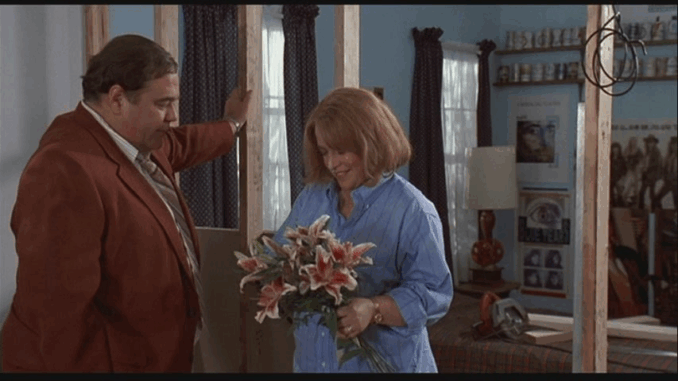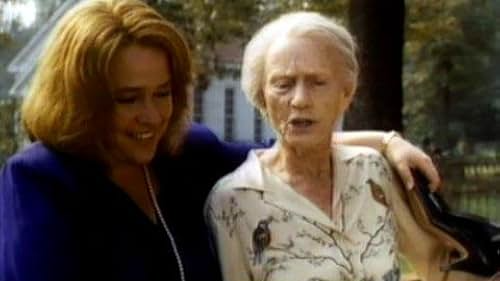
Kathy Bates delivers one of her most endearing and transformative performances as Evelyn Couch, the modern-day woman who rediscovers herself through stories of the past. At the beginning of the film, Evelyn is the embodiment of quiet frustration — a suburban housewife who follows every rule yet feels invisible in her own life. Her marriage has grown stale, her confidence has withered, and her sense of identity has nearly disappeared. She moves through life apologetically, trying to fit into a world that doesn’t seem to notice her.
That begins to change when she meets Ninny Threadgoode (Jessica Tandy), a sharp, witty elderly woman who shares stories from her youth in the small town of Whistle Stop, Alabama. Through Ninny’s vivid recollections of Idgie Threadgoode and Ruth Jamison — two women who defied the expectations of their time — Evelyn slowly begins to see a reflection of her own suppressed desires and hidden strength. The friendship between Ninny and Evelyn becomes one of the most quietly powerful elements of the film: a reminder of how women across generations can inspire and heal one another simply by sharing their stories.
Bates brings this transformation to life with rare authenticity. Her performance balances humor, vulnerability, and raw honesty. In the early scenes, Evelyn’s awkward small talk and nervous laughter are tinged with pain; she wants to be heard, but she’s been conditioned not to take up space. As the film unfolds, however, Bates lets the audience witness every flicker of self-awareness, every spark of rebellion that begins to awaken inside Evelyn. It’s a gradual metamorphosis — not the kind born of fantasy or romance, but of courage, connection, and rediscovery.

The defining moment of her awakening — the now-iconic “Towanda!” scene — has become part of cinematic history. After years of playing by the rules, Evelyn finds herself in a grocery store parking lot where two younger women steal her parking space. Instead of swallowing her anger, she acts on it — slamming her car into theirs, again and again, shouting “Towanda!” as a declaration of freedom. The moment is outrageous, funny, and deeply symbolic. It’s not about revenge; it’s about release. “Towanda” becomes more than a word — it’s an alter ego, a battle cry, and a metaphor for reclaiming one’s identity after decades of invisibility.
Bates infuses that moment with such fierce energy and joy that audiences can’t help but cheer for Evelyn. But what makes the scene enduring is that it doesn’t mark the end of her journey — it’s only the beginning. From there, Evelyn begins to take control of her life: she pursues new experiences, asserts herself in her marriage, and learns to live with boldness and laughter. Her transformation is a celebration of every woman who has ever felt overlooked yet dared to rise again.
Critics praised Bates for her comedic timing, emotional depth, and fearless physicality. Her performance resonates because it feels real — not polished or idealized, but messy, human, and empowering. Through Evelyn, Bates captures a universal truth about womanhood: that reinvention is possible at any age, and self-worth is not something to be granted by others, but discovered within.
In the larger fabric of Fried Green Tomatoes, Evelyn’s story mirrors the resilience of Idgie and Ruth — women from another time who also fought to define their own lives in a world that tried to confine them. Director Jon Avnet uses these parallel narratives to remind audiences that courage is timeless, and that the struggles of women, though different in context, are united by a shared yearning for freedom and self-expression.
Bates’ portrayal turned Evelyn Couch into a feminist icon of the early 1990s — not through overt slogans or rebellion, but through authenticity and transformation. She represents the millions of women who wake up one day and realize they’ve been living by someone else’s script — and decide to rewrite it. More than three decades later, Evelyn’s journey still feels revolutionary, inspiring viewers to embrace change, speak their truth, and shout “Towanda!” when the world tries to silence them.
